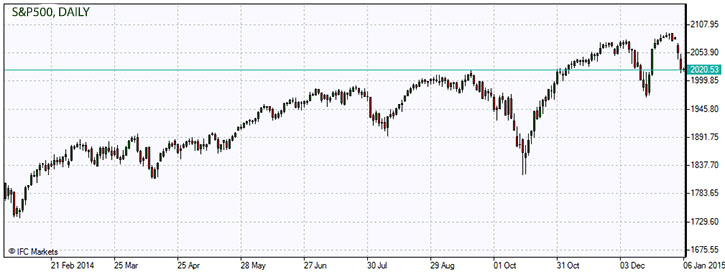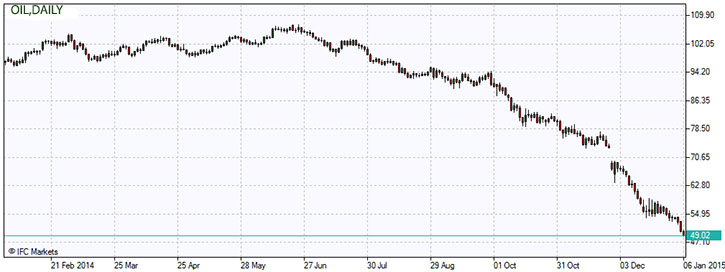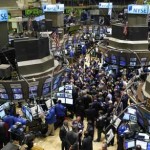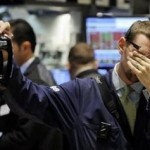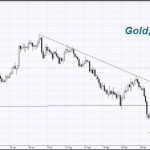Markets retreat as oil plunges
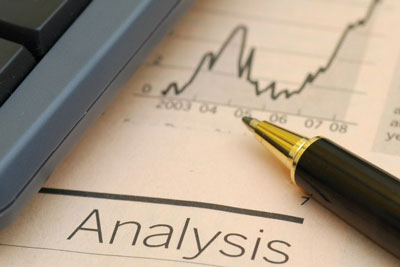
World stock markets tumbled on Monday on continued fall in oil prices and surging dollar. Sell-off of US equities dragged US stock indices down, with Dow Jones Industrial and the S&P 500 recording their worst losses since October. Investors sold off energy stocks as WTI slid below $50 a barrel. The Dow Jones Industrial Average also suffered its largest one-day decline in three months, with 28 of its 30 components closing with losses. The US Dollar Index, which has increased nearly 2% already in 2015, upped 0.3% on Monday. Today at 16:00 CET the December Non-Manufacturing Purchasing Managers’ Index (PMI) by the Institute for Supply Management will be released in US. The Non-manufacturing PMI is expected to reach 58.2 in December having increased to 59.3 in November, which may contribute to temporary weakening of US dollar as the Manufacturing PMI also came out lower than expected earlier on Friday.
European stocks fell sharply on Monday on concerns over political uncertainty in Greece and falling oil prices. Investors are concerned that the opposition Syriza party may win the snap election scheduled for January 25 after the third and final parliamentary vote failed to elect a new Greek president. Syriza has threatened to stop implementing the austerity program that the country agreed to as a condition for the international bailout. Today from 9:15 to 10:00 CET December Services PMI by Markit will be released for Spain, Italy, France, Germany and Eurozone. They are expected to remain unchanged from previous month levels and should not affect financial markets. A slightly improved December Services PMI for UK is expected to be released at 10:30 CET, which may positively affect the British Pound. The euro recovered after falling to its lowest level in nine years as investors covered their shorts to take profits. Investors started selling the single European currency ahead of the expected large-scale purchases of government bonds by the European Central Bank. The ECB’s next monetary policy meeting is scheduled for January 22 and analysts expect the ECB may decide to start the quantitative easing program to add around €1 trillion to the central bank’s approximately €2 trillion-balance sheet. On Monday the final German consumer price index reading for 2014 was released, indicating prices remained unchanged month over month against an expected 0.1% increase. The likelihood that the ECB will decide to start the quantitative easing will greatly increase if the Eurozone CPI for December, expected to be released on Wednesday, shows falling prices as the tentative outlook indicates.
Japan’s Nikkei average is falling today on concerns over Greece’s future in the euro-zone and falling oil prices. The yen is gaining against the dollar as investors seek the traditional safety of the Japanese currency amid worries about global growth.
On the backdrop of swelling oil supplies the Saudi Arabia state-owned producer, known as Saudi Aramco, raised prices for all its sales to Asia in February and cut all of them for Europe and most in the US. It will sell its Arab Light grade for $1.40 a barrel less than a regional average next month, the company said yesterday in a statement.
Gold climbed for a third day as slumping equity markets and concern that Greece may quit the euro area spurred demand for the safe haven asset. Silver and palladium rose.
Source: ifcmarkets – Markets retreat as oil plunges









